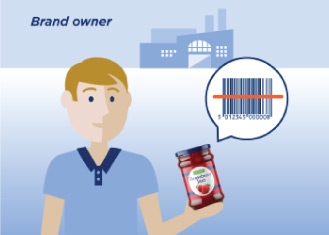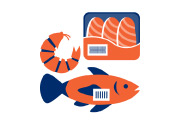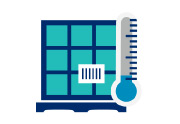
Identify
Product GTINCompany GLN
GLN's are assigned to manufacturers, distributors, restaurants & retailers.

.jpg)
Share product data
GDSN NetworkProduct data like nutritional info & allergens is added, managed & shared with the GDSN.



.jpg)

